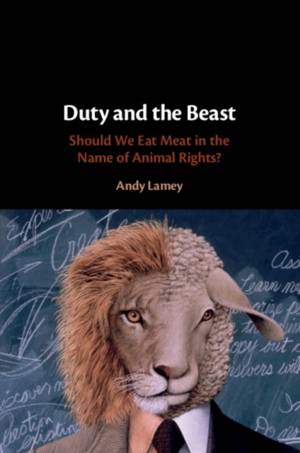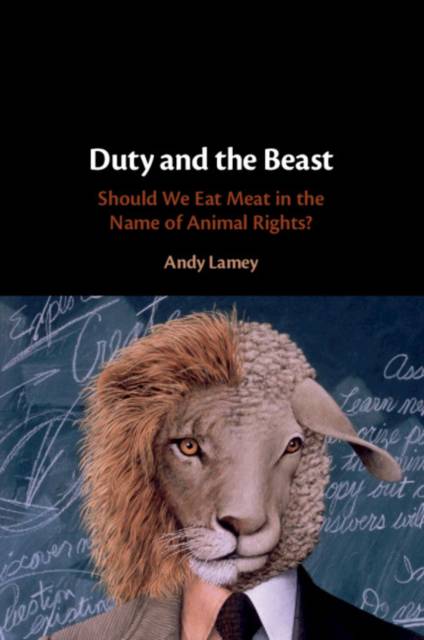
Je cadeautjes zeker op tijd in huis hebben voor de feestdagen? Kom langs in onze winkels en vind het perfecte geschenk!
- Afhalen na 1 uur in een winkel met voorraad
- Gratis thuislevering in België vanaf € 30
- Ruim aanbod met 7 miljoen producten
Je cadeautjes zeker op tijd in huis hebben voor de feestdagen? Kom langs in onze winkels en vind het perfecte geschenk!
- Afhalen na 1 uur in een winkel met voorraad
- Gratis thuislevering in België vanaf € 30
- Ruim aanbod met 7 miljoen producten
Zoeken
€ 64,95
+ 129 punten
Uitvoering
Omschrijving
The moral status of animals is a subject of controversy both within and beyond academic philosophy, especially regarding the question of whether and when it is ethical to eat meat. A commitment to animal rights and related notions of animal protection is often thought to entail a plant-based diet, but recent philosophical work challenges this view by arguing that, even if animals warrant a high degree of moral standing, we are permitted - or even obliged - to eat meat. Andy Lamey provides critical analysis of past and present dialogues surrounding animal rights, discussing topics including plant agriculture, animal cognition, and in vitro meat. He documents the trend toward a new kind of omnivorism that justifies meat-eating within a framework of animal protection, and evaluates for the first time which forms of this new omnivorism can be ethically justified, providing crucial guidance for philosophers as well as researchers in culture and agriculture.
Specificaties
Betrokkenen
- Auteur(s):
- Uitgeverij:
Inhoud
- Aantal bladzijden:
- 272
- Taal:
- Engels
Eigenschappen
- Productcode (EAN):
- 9781316612880
- Verschijningsdatum:
- 2/09/2021
- Uitvoering:
- Paperback
- Formaat:
- Trade paperback (VS)
- Afmetingen:
- 152 mm x 229 mm
- Gewicht:
- 367 g

Alleen bij Standaard Boekhandel
+ 129 punten op je klantenkaart van Standaard Boekhandel
Beoordelingen
We publiceren alleen reviews die voldoen aan de voorwaarden voor reviews. Bekijk onze voorwaarden voor reviews.









